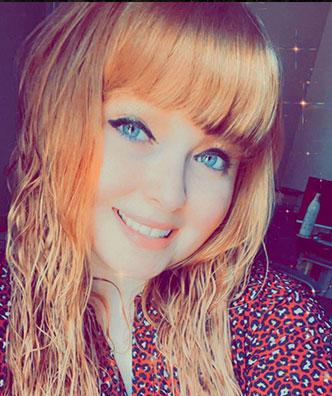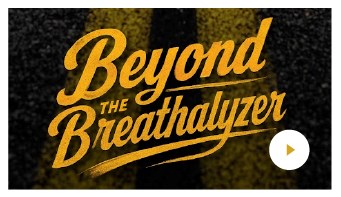Fall 2022 Behan Law Group Military Veteran Scholarship Winners
Each semester, The Behan Law Group offers an award of $1,000 to support the higher education of military veterans, current service members, and their children. Our scholarship also requires the applicant to submit an essay discussing how their experience affected their academic and career goals and they plan to use their education to positively impact their community.
Summer A. Hill

Summer’s essay exemplifies her passion for helping others and making a difference in communities that matter a great deal to her. The graduate student continues to display both determination and perseverance throughout her personal, academic, and professional life.
Read Summer's Essay:
Goals: I served in the U.S. Army Reserves for 5 years from 2013 to 2018. I was injured early on in my military career. My injuries led to various other orthopedic issues, surgeries and procedures and eventually leading to autoimmune disorders. From 18 years old and on, the military and my injuries that I acquired in the military shaped my mentality. These experiences led me to develop a passion for wanting to help people with chronic pain and chronic illnesses or misunderstood illnesses. I had to switch my career path from becoming a physician's assistant to making a career out of research. This was mainly due to not wanting to exacerbate my physical ailments. I quickly became extremely impassioned to make a career out of research. I thought that searching for the unknown and finding answers to questions that researchers have asked for decades now was thrilling. Over the past few years, I have had loved ones pass away from Alzheimer's Dementia and have had loved ones diagnosed with Autism Spectrum Disorder and that is why I applied for ASU's ABA program. During ASU’s ABA graduate certificate program, I will be in great academic standing, with at least a GPA of 3.0. I also plan on developing the necessary skills and expanding my knowledge about applied behavior analysis. This will allow me to incorporate these skills in my research as a behavioral researcher.
I am currently working in oncology research on a Multiple Myeloma research team at the Duke Cancer Institute. However, I am now enrolled in ASU's Applied Behavior Analysis program. I plan on eventually applying to PhD psychology programs with a focus on behavioral analysis. My dissertation will be solely based on the genetic overlap of individuals with ASD and AD. My ultimate goal is to help those with AD and ASD, to assist with improving their quality of life and helping to manage their disorder/disease. Someday I would like to work at the NIH as a behavioral analysis researcher, striving to find better ways to help those with ASD and AD. After the ABA program, I will have garnered more knowledge and skills to inform my loved ones on how to manage their ASD or AD. I will be able to share the information that I have learned. Additionally, when I am licensed as a BCBA (Board Certified Behavior Analyst), I will be able to give my professional recommendations for them. This program is important to not only myself but also my loved ones as well. I will not only be able to help various patients with ASD, but also to help my loved ones with ASD or are affected by someone who they may care for with ASD.
Family: At the age of 5, my parents were divorced and my brothers and I moved to New York with my mother. Throughout my childhood, adolescence and adulthood, my mother has taught me some important life lessons on how I should conduct myself and how to treat others, regardless of how they may treat me. My mother was a teacher's aid in my elementary school and she specifically worked with children in special education. At the age of 6 years old, she taught me that regardless of a person being mentally or physically incapacitated, we still need to treat these students with love and respect. Empathy goes a long way. I learned from an early age that mental and physical disabilities make a person unique and are exceptional in their own way. My mother also taught me around my adolescence that early intervention is key to help manage a person's disabilities. When an educator is able to identify a student's hardships and has properly identified the student's strengths, then the educator can effectively communicate and help that student. As an adult, my mother has reminded me of these life lessons and how empathy can positively affect a person’s outlook on their life and the hardships that they may face.
Learning Experiences: I have done my own research about individuals with Autism Spectrum Disorder and patients with Alzheimer's Dementia. I think the two disorders/diseases are fascinating and it is imperative that I continually research them to be able to effectively perform my own research someday. Additionally, I attained a certificate through the UNC TEACCH program to learn more about ASD, who the disorder generally affects and how I can be a better behavior analysis researcher. In the UNC TEACCH program (Treatment and Education of Autistic and related Communications Handicapped Children) I learned that 1 in 44 American children are diagnosed with ASD and 35% of those diagnosed have an intellectual disability. That being said, there are more and more diagnoses of ASD every year, with little guidance for families, physicians and educators. I am striving to work in the behavioral research to find ways to better manage ASD. This certificate program will allow me the opportunity to expand my horizons. I will be able to be certified and eventually licensed as a BCBA to perform behavioral research on individuals with ASD. The ABA program will allow me to attain the knowledge to easily identify the symptoms of ASD such as: Restricted, repetitive patterns and the uneven patterns of development that ASD often portrays in patients with this neurodevelopmental disorder.
Life Challenges: I’ve had to overcome numerous challenges throughout my entire adulthood. I joined the U.S. Army Reserves at 18 and was traumatically injured the first year in the Army. I had a stage four femoroacetabular stress fracture. The stress fracture led to lower back muscle spasms, knee and hip issues. Less than a year after my initial injuries, I developed rheumatoid arthritis and fibromyalgia because my body could not handle the stress from my injuries. Since 2016, I have had six surgeries: 2 right hip arthroscopies, 1 right knee arthroscopy, a Nissen fundoplication, 1 right shoulder arthroscopy and a right thyroid lobectomy because I developed papillary thyroid carcinoma from a medication that I took for my rheumatoid arthritis. Over the past 8 years now, I have acquired a great amount of resilience and patience for all of the adversity that I have faced and have overcome. My family and friends have been my main supporters. Because of the adversity that I have had to overcome, it has made me more empathetic, compassionate and a strong desire to help this with physical and mental ailments.
Scholarship need: This scholarship would assist me with paying for my ABA graduate certificate program. Due to the financial burdens that I currently face from all of the medical bills that I have, it would be formidable to pay for this program on my own. Additionally, the medical bills that I have are affecting my credit which also affects me applying for loans. This scholarship would help to eliminate the need for a loan and assist with the financial hardship of having to pay for school out of pocket. I also need to pay for my school books and supplies out of pocket and this scholarship could potentially assist with that financial grief. Once I have finished this ABA program, I am going to take the North Carolina Psychology licensing board to become a Board Certified Behavioral Analyst. My first goal after that is to apply for PhD psychology programs with a focus on behavioral analysis. I will base my dissertation off of the genetic overlap of ASD and AD, while incorporating what I have learned from this ABA program into my dissertation.





